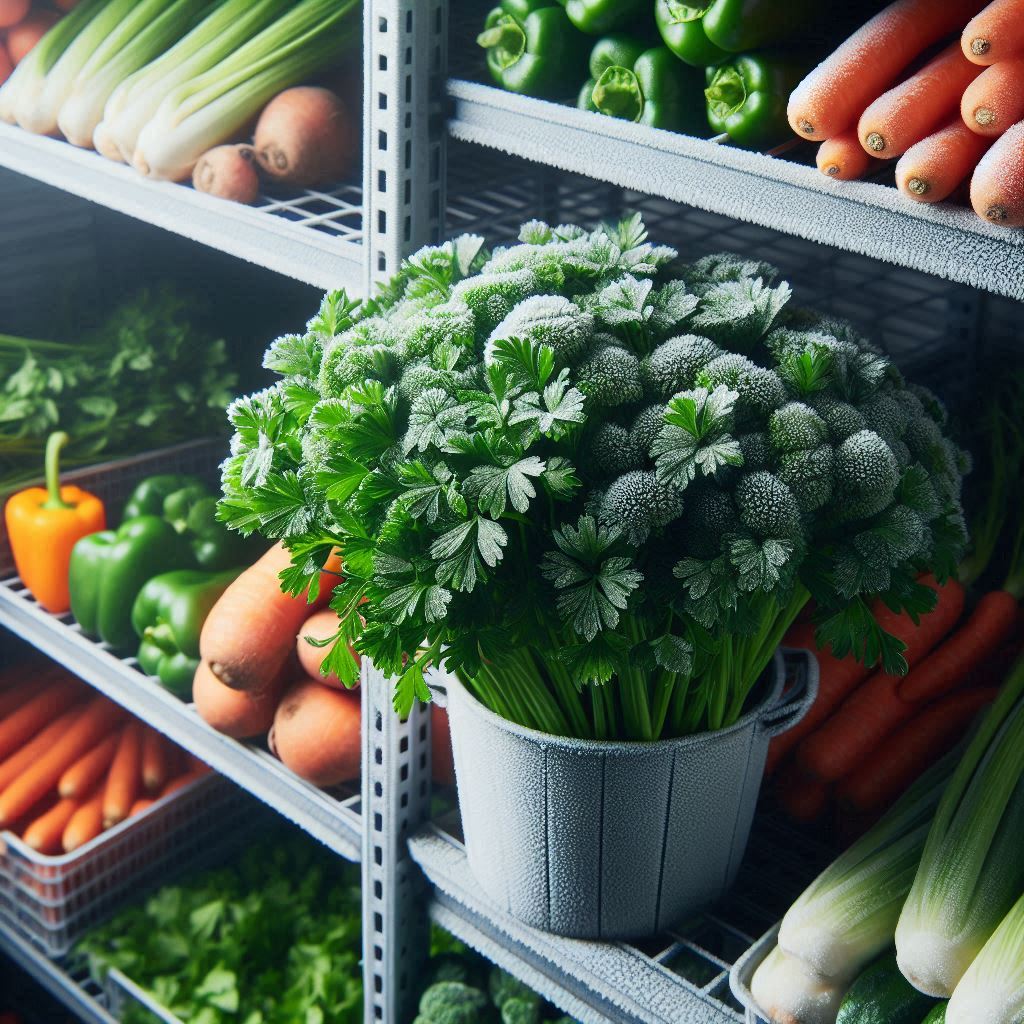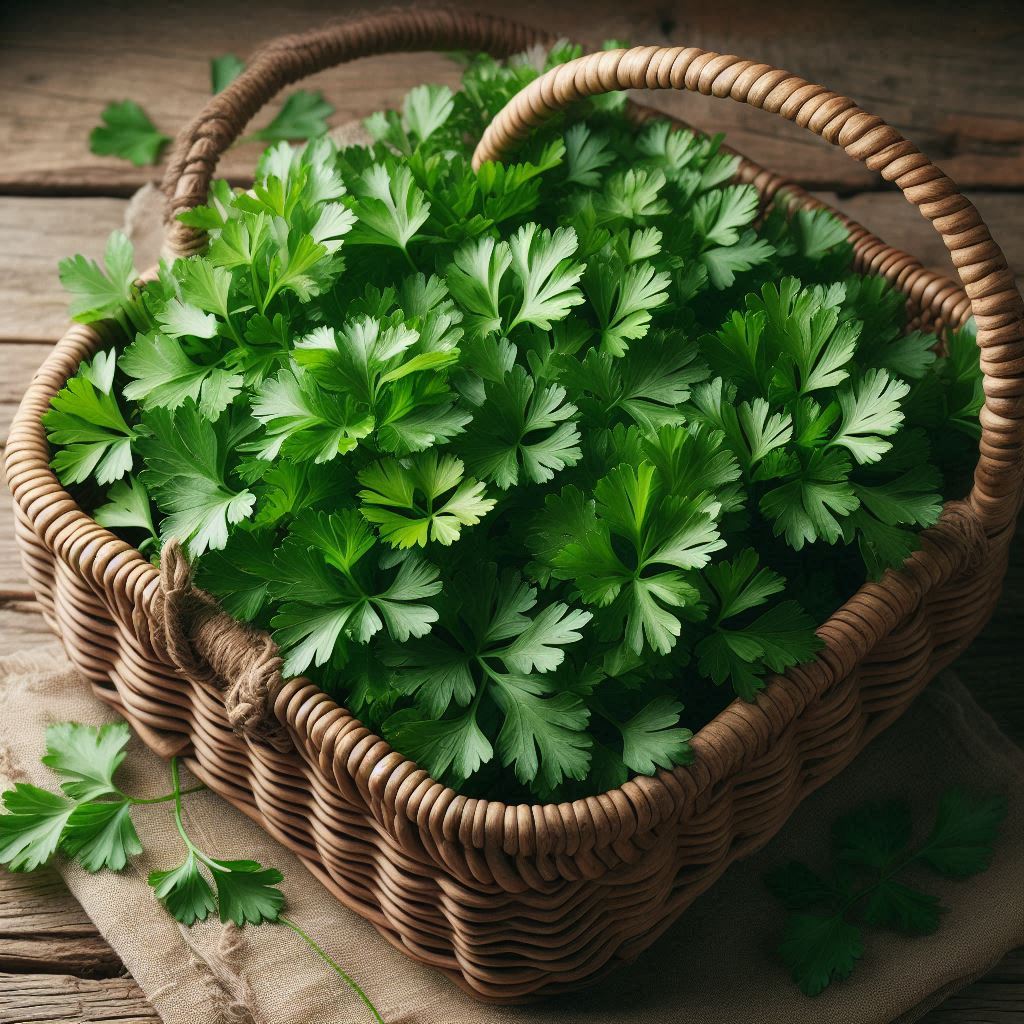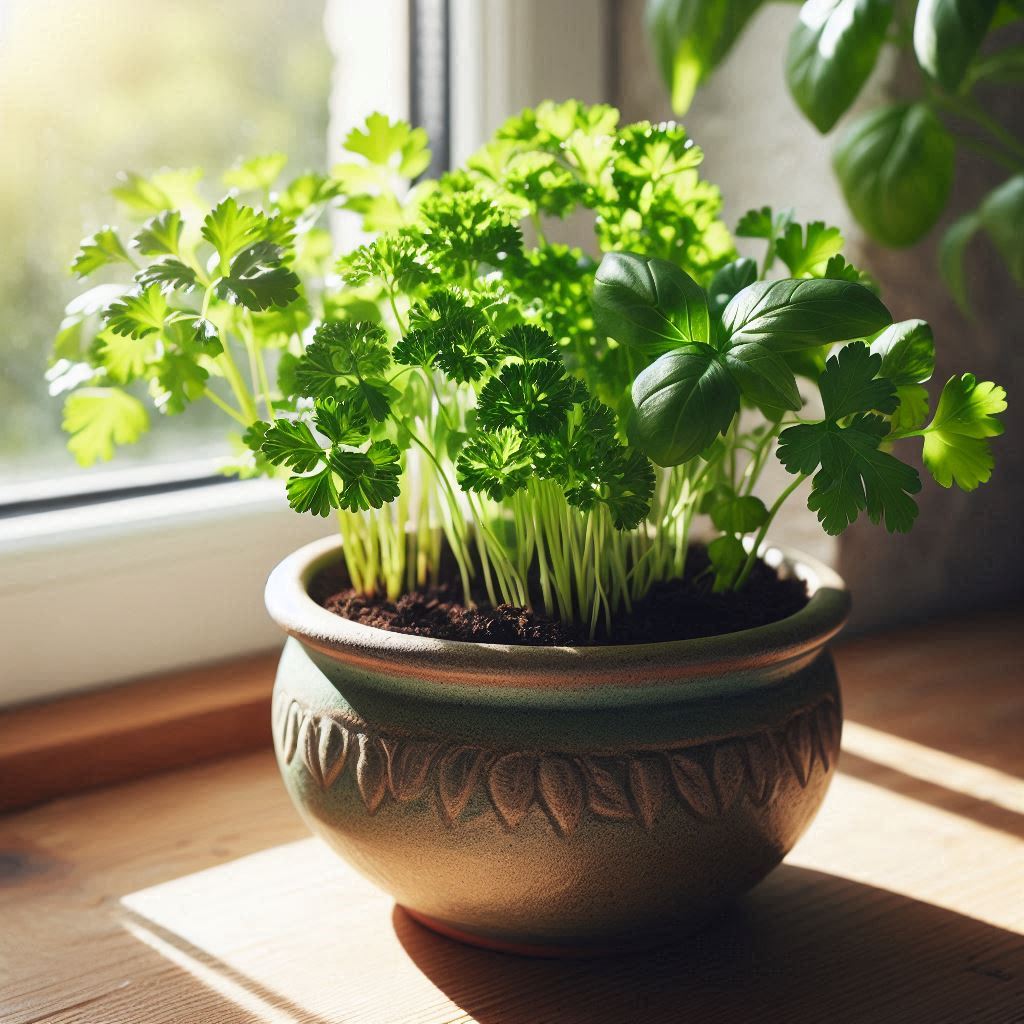Product Name: Parsley
Type: summer crops
Storage Conditions: cold and dry
Packaging Type: plastic basket
Parsley (Petroselinum crispum): Cultivation, Nutrition, and Benefits
Parsley is one of the most popular herbs worldwide, widely used in cooking and herbal medicine. This biennial plant serves as a spice, seasoning, and fresh herb, offering numerous nutritional and medicinal benefits. This article covers parsley cultivation, care, harvesting, and its health advantages.
Parsley Cultivation
Seed Selection and Soil Preparation
High-quality seeds are essential for a successful parsley harvest.
✅ Ideal Soil Conditions:
✔ Well-drained, nutrient-rich soil
✔ pH range: 6.0 – 7.0
Before planting, the soil should be loosened and enriched with compost or organic matter.
Planting Time and Methods
Parsley is a cold-resistant plant, suitable for planting in early spring or fall.
🔹 Planting Guidelines:
✔ Seed depth: 0.5 – 1 cm
✔ Row spacing: 20 – 30 cm
✔ Seed spacing: 5 – 10 cm
✔ Germination time: 2 – 4 weeks
Patience is key, as parsley seeds take time to sprout.
Growth Conditions and Maintenance
Watering
Parsley needs consistent watering, especially during early growth.
✅ Best Practices:
✔ Keep the soil moist but not waterlogged.
✔ Avoid overwatering to prevent root rot.
Fertilization
Parsley requires proper nutrients for healthy growth.
✅ Recommended Fertilizers:
✔ Nitrogen (N): Promotes leaf growth.
✔ Potassium (K): Enhances plant health.
✔ Organic compost: Improves soil structure and fertility.
Pest and Disease Control
Parsley is naturally resistant to pests, but it may be affected by:
❌ Aphids and chewing insects
❌ Fungal diseases due to excess moisture
✅ Control Methods:
✔ Use natural insecticides and biological pest control.
✔ Ensure proper soil aeration and controlled watering.
Parsley Harvesting
Parsley can be harvested continuously throughout the growing season, usually 70 – 90 days after planting.
✅ Harvesting Tips:
✔ Pick leaves in the early morning for maximum freshness.
✔ Trim leaves from the base to encourage regrowth.
Nutritional Value and Health Benefits of Parsley
Parsley is rich in vitamin C, vitamin K, vitamin A, and antioxidants. Regular consumption supports heart health, strengthens the immune system, improves vision, and reduces the risk of chronic diseases.
Vitamin C
✔ Boosts immune function and collagen production.
✔ Promotes healthy skin.
Vitamin K
✔ Supports bone health and blood clotting.
✔ Helps improve bone density and reduce fracture risk.
Antioxidants
✔ Contains flavonoids and carotenoids that reduce inflammation.
✔ Helps prevent chronic diseases like heart disease.
Culinary Uses of Parsley
Parsley’s mild flavor and fresh aroma make it an essential ingredient in many dishes, including salads, sauces, soups, and meat-based meals.
Salads and Sauces
Parsley enhances the flavor and aroma of fresh salads and dressings.
Garnishing and Seasoning
Parsley is widely used as a garnish for soups, stews, and various dishes, adding both aesthetic appeal and taste.
Why Buy from Us?
🌿 Freshness & High Quality
✅ We provide fresh, hand-picked parsley, ensuring top quality and flavor.
🚚 Fast & Secure Delivery
✅ Our efficient logistics ensure parsley reaches you quickly and in perfect condition.
💰 Affordable Pricing
✅ By eliminating middlemen, we offer competitive prices.
📞 Customer Support
✅ Our dedicated team is always available to assist you.
How to Order?
📌 Visit our export page to choose your desired parsley.
📌 Contact our specialists for assistance.
📌 Place your order, and we'll ensure quick processing and delivery.
Enjoy fresh, high-quality parsley delivered straight to you! 🌿



